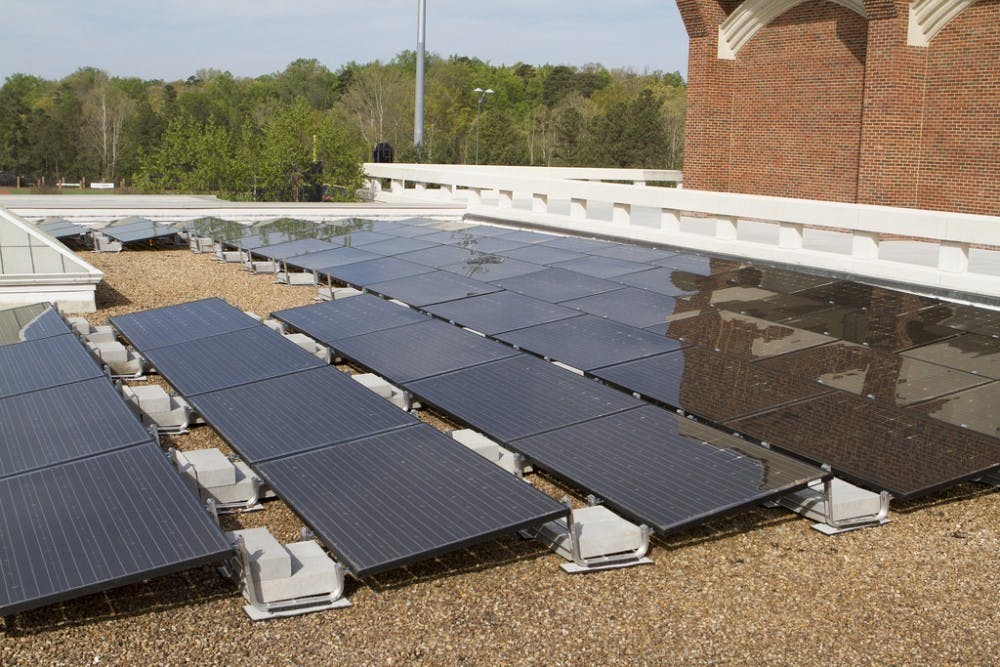The University of Richmond matches 100% of its electricity needs with a single solar power source because of the Spider Solar program, which has been live since Dec. 31, 2020.
Located about an hour north of UR in Spotsylvania County, Spider Solar is a 20-megawatt solar energy facility that contains 47,000 panels and produces 41,000 megawatt-hours of solar energy annually, according to a UR press release.
Unlike the solar panels located above the Weinstein Center for Recreation, Spider Solar does not directly provide power to UR. Instead, it sends solar energy into the electricity grid, which neutralizes the carbon energy the campus sends into it, said Office for Sustainability Director Rob Andrejewski.
“Our solar array is producing electricity that goes into [the] grid,” Andrejewski said. “We are able to claim the ‘green attributes’ from it through something called Renewable Energy Certificates (RECs).”
RECs are generated for every megawatt hour of energy that is produced and are essentially a “market-based mechanism” that allows organizations/institutions such as UR to claim that they are not emitting any greenhouse gases through electrical energy, Andrejewski said.
Spider Solar was built by Applied Energy Services Clean (AES), according to the press release. UR has a purchase power agreement with AES where the school buys RECs from them.
“Through a purchase power agreement, AES will manage the day-to-day operations of the solar array, and UR agrees to pay a fixed price for the renewable energy it creates,” according to a message by Mark Detterick, UR’s senior associate vice president of campus operations, in the press release.
Despite matching 100% of on-campus energy needs through this neutralization, there is still room for improvement on campus when it comes to reducing carbon energy output, said Engineering Services Manager Mark Beatty regarding sustainability on campus.
“There is a lot of stuff that I think we could improve,” Beatty said. “Stuff as simple as putting in occupancy sensors on lighting in hallways through our residence halls that are unoccupied for months of the year.”
Beatty has been working at UR for close to 20 years, and he appreciates the awareness students have about energy sustainability despite the energy sustainable shortcomings the campus's infrastructure possesses, he said.
“I think more so now than ever, [students] are more conscious than ever [about energy sustainability],” Beatty said. “It’s appreciated too because I think a lot of students' expectations are that we are making the right decisions [when it comes to sustainability].”
Rachel Stall, a sophomore at UR and the Climate Action Reporting Intern for the Office of Sustainability, said that the office was working on providing students with some resources aimed at making individual students more energy sustainable in their living habits.
Enjoy what you're reading?
Signup for our newsletter
“I think that students are aware that there are solar panels, that the university is relatively progressive when it comes to renewable energy,” Stall said. “I’m not sure if they’re aware of exactly what [the sustainability office] is doing.”
Contact sports editor Krystian Hajduczka at krystian.hajduczka@richmond.edu.
Support independent student media
You can make a tax-deductible donation by clicking the button below, which takes you to our secure PayPal account. The page is set up to receive contributions in whatever amount you designate. We look forward to using the money we raise to further our mission of providing honest and accurate information to students, faculty, staff, alumni and others in the general public.
Donate Now



